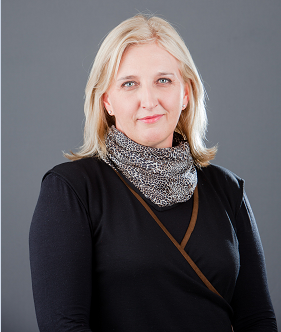IFAC elige a ACCA para fortalecer estratégicamente la profesión contable en Ruanda
La Federación Internacional de Contadores® (IFAC®), la organización global para la profesión contable, anunció que la Asociación de Contadores Públicos Colegiados (ACCA por sus siglas en inglés) brindará apoyo al Instituto de Contadores Públicos Certificados de Ruanda (iCPAR) en sus próximos pasos estratégicos de desarrollo y crecimiento.
El iCPAR se estableció en 2008, con el apoyo del gobierno de Ruanda y una serie de contribuyentes, y tan solo cuatro años más tarde, fue admitido como Asociado de la IFAC. Actualmente, el Instituto cuenta con más de 250 contadores cualificados que trabajan para una robusta economía, la cual ha experimentado un crecimiento significativo en los últimos cinco años y se espera que continúe creciendo.
"El iCPAR inició con solidez”, comentó Alta Prinsloo, Directora Ejecutiva y Directora Operacional y Estratégica de la IFAC. "Una profesión sólida y una capacidad potenciada son esenciales para apoyar el rápido crecimiento económico de Ruanda, así como para implementar reformas públicas de gestión financiera".
Bajo el proyecto, la ACCA trabajará con el iCPAR en la actualización de su plan estratégico y en el desarrollo de un plan de trabajo para implementar la estrategia, la cual incluirá un apoyo en la revisión y el fortalecimiento de sus sistemas para la educación contable, la cualificación y el desarrollo profesional continuo.
Además de lo anterior, la ACCA y el iCPAR están comprometidos con la firma de un Memorando de Entendimiento independiente que establecerá el marco para la colaboración transparente en las necesidades actuales y futuras. Ambos acuerdos contribuirán en promover una colaboración duradera y sostenible que apoye el crecimiento estratégico.
"La ACCA cuenta con 40 años de experiencia fortaleciendo a organizaciones profesionales de contabilidad, incluyendo su labor en economías de mercado emergentes y en estados frágiles y precarios, así como el trabajo con empleadores, gobiernos, reguladores y otros actores clave", manifestó Stephen Heathcote, Director Ejecutivo de Mercados de ACCA. "Creemos firmemente en el desarrollo de organizaciones nacionales de contabilidad robustas y autosostenibles que, a su vez, apoyen una profesión global sólida. El iCPAR tiene mucho con qué avanzar —desde su sólido inicio hasta su relación con el gobierno nacional—; este acuerdo le brindará el apoyo necesario para realmente ayudar a Ruanda.
En 2014, la IFAC recibió aproximadamente £5 millones del Departamento para el Desarrollo Internacional (DFID) del Reino Unido para financiar la creación de capacidad de la Organización Profesional de Contabilidad (PAO) en diez países emergentes durante un periodo de siete años. Este nuevo proyecto llevará adelante la financiación de 2014, en apoyo de una tercera PAO, tras una serie de proyectos para Ghana y Uganda, anunciados anteriormente. La elección de la ACCA se llevó a cabo tras un Llamado a Expresiones de Interés global y un extenso proceso de revisión de su propuesta, la cual implicó la participación del Comité de Supervisión para el Programa de Creación de Capacidad correspondiente a la PAO de la IFAC y el Panel Independiente de Selección.
Acerca de la IFAC
IFAC es la organización global para la profesión contable, dedicada a servir el interés público a través del fortalecimiento de la profesión y la contribución para el desarrollo de economías internacionales sólidas. La IFAC se compone de 175 miembros y asociados en 130 países y territorios, representando aproximadamente a 2,8 millones de contadores en la práctica pública, la educación, el gobierno, la industria y el comercio.
Acerca de la ACCA
ACCA (la Asociación de Contadores Públicos Colegiados) es un organismo global para los contadores profesionales. Esta ofrece certificaciones de primera elección —y relevantes a nivel corporativo— a personas de aplicación, capacidad y ambición alrededor del mundo que buscan una carrera gratificante en contabilidad, finanzas y administración.
ACCA apoya a sus 178.000 miembros y 455.000 estudiantes en 181 países, ayudándolos a desarrollar carreras exitosas en contabilidad y negocios, con las habilidades requeridas por los empleadores. La Asociación trabaja a través de una red de 95 oficinas y centros, y con más de 7.110 Empleadores Aprobados en todo el mundo, quienes proporcionan altos estándares de aprendizaje y desarrollo del empleado. A través de su área de interés público, la ACCA promueve la regulación apropiada de la contabilidad y realiza investigaciones relevantes para garantizar que la contabilidad continúe creciendo en reputación e influencia.
Fundada en 1904, ACCA ha mantenido los siguientes valores fundamentales: oportunidad, diversidad, innovación, integridad y responsabilidad. La Asociación considera que los contadores brindan un valor a las economías en todas las etapas de desarrollo, por lo que busca desarrollar capacidad en la profesión e impulsar la adopción de los estándares globales. Los valores centrales de la ACCA están alineados con las necesidades de los empleadores en todos los sectores, y esto lo garantiza con sus cualificaciones, preparando a los contadores para trabajar en las empresas. La ACCA busca abrir las puertas de la profesión a personas de toda proveniencia y eliminar las barreras artificiales, innovando sus cualificaciones y entrega para cumplir con las diversas necesidades de los profesionales capacitados y sus empleadores. Para mayor información referirse a www.accaglobal.com.
Acerca del DFID
El Departamento para el Desarrollo Internacional del Reino Unido (DFID) lidera el esfuerzo del Reino Unido para erradicar la pobreza extrema. El Departamento está acabando con la necesidad de auxilio generando empleos, explotando el potencial de mujeres y niñas y ayudando a salvar vidas en caso de emergencias humanitarias. Para mayor información, visitar la página www.gov.uk/dfid.
ACCA apoyará al iCPAR en la creación de capacidad mediante el programa financiado por el DFID.

